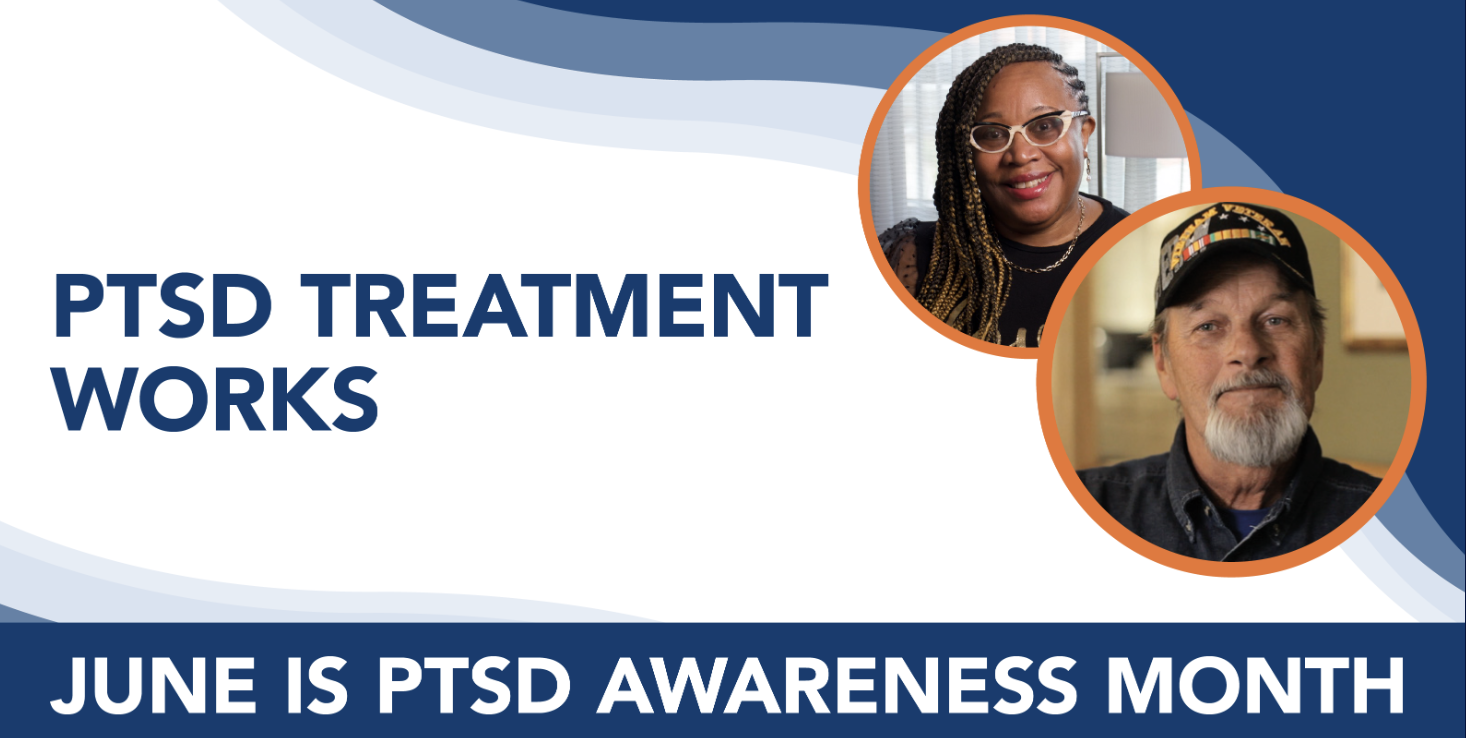As a trauma survivor who used to have PTSD*, June is a special month for me.
I wrote at length recently about what pisses me off about PTSD treatment if you are a civilian. The VA does a decent job with educating people and providing services, but what if your trauma isn’t from serving our country?
We might not even know we have PTSD, and if we have not served in the military, it might be the last place we’d think to look if we had questions about this condition. (Curious if your trauma symptoms are related to PTSD? Take this FREE PTSD Quiz to find out!)
BUT…this is what we’ve got. And the VA has produced good resources, especially for the month of June. This month’s series of blog posts will be highlighting what’s offered!
First, What the Heck is PTSD?
PTSD is Post Traumatic Stress Disorder.
Basically, PTSD happens when we see or experience a traumatic event that is shocking and/or dangerous and we are not able to process it in real time.
There might be many reasons that we aren’t able to process it. For instance, we might have come out of an abusive childhood where we had to be shut down in order to survive, which results in complex trauma responses and PTSD. Or there might be a regional or global catastrophe – like September 11th, Hurricane Katrina, or a pandemic – that affects a large population with little to no resources for processing the trauma.
About 5 out of every 100 adults (or 5%) in the U.S. has PTSD in any given year.
PTSD Awareness: Four Main Symptoms
The thing about PTSD is that the symptoms show up when they show up. They can occur soon after a traumatic event, or can be delayed by months, years, or decades.

For instance, my symptoms didn’t kick in hard until I was 32; part of the delay was that I started intensive therapy and became more aware of what my brain and body were doing.
There are four types of symptoms with Post Traumatic Stress Disorder:
*Memories – these can be experienced as nightmares and/or “waking dreams” or flashbacks. They can be like reliving the event or experiencing the emotions and feelings of the event. Triggers are big here.
*Avoidance – In my trauma and PTSD recovery journey, avoidance has a HUGE symptom. Avoiding talking about, remembering, people, and places that reminded me of my traumatic events. For instance, I used to avoid large crowds and a lot of stimuli, because I got very easily overwhelmed and/or triggered.
*Negative Thoughts & Feelings – Oomph. This is the one that is the most painful for me, but I’ve experienced the most transformation. Feeling numb, being unable to talk about the trauma, having big holes in your memory, and guilt and shame go here.
*Startled – I was exceptionally easy to startle when I had PTSD. This is also called hyperarousal. Feeling irritable or jittery, developing addictions, and having a hard time concentrating and/or sleeping is part of this symptom.
Side Note: What’s a Trigger?
Here’s an example: I go into a room. I smell Aqua Velva after shave. The smell puts me right back when I was seven years old, with my abusive father. I can’t breathe. I scan the room for danger and exits. My body panics and I feel nauseous. Full-on nervous system activation.
A trigger is when something jolts you into a visual or emotional flashback, like you are back in the trauma. It’s your fire alarm system going off when there is the memory of a fire, but you are in no danger.
Triggers can be caused by hearing fireworks (this one is super common), new reports, or seeing or smelling something that is from the traumatic event.
Basically, our warning system is stuck in the ON position (PTSD Remediation resets our systems back into a more “normal” function).
Behold! The PTSD Awareness Calendar
I love this calendar because every day has a resource with a clickable link. Some of the info is for survivors like us, while some is to share far and wide.
If you tap on the pic of the calendar, it will take you to the downloadable (and clickable!) version. Enjoy spreading the word about PTSD and raising awareness!

*USED to have PTSD? Yep. My last PTSD trigger was September 26, 2020. I went through PTSD Remediation and now I offer this treatment to clients. You can read more about PTSD Remediation here.
Latest Posts
- Reigniting Belief in Myself Storytime! (Paris Storytelling Video Series)
- Losing Hope? The Second Essential Skill to Reignite Hope
- Resource for Working Through Political Grief
- How to Partner with Me as I Learn Storytelling in Paris! Video Series
- #1 of Five Essential Skills to Keep From Losing Hope
Try Trauma Recovery & Grief Recovery Coaching

Sign up here to get a free copy of Five Things Every Trauma Survivor Needs to Know AND
61 Tips About the Grief Experience.
Find out more about Trauma and Grief Recovery Coaching
I offer one-on-one sessions, groups, PTSD Remediation, and classes. Appointments are offered in-person and online.
Try Trauma Recovery and Grief Recovery Coaching for Free! Book a free 30-minute Discovery Call to find out more!
